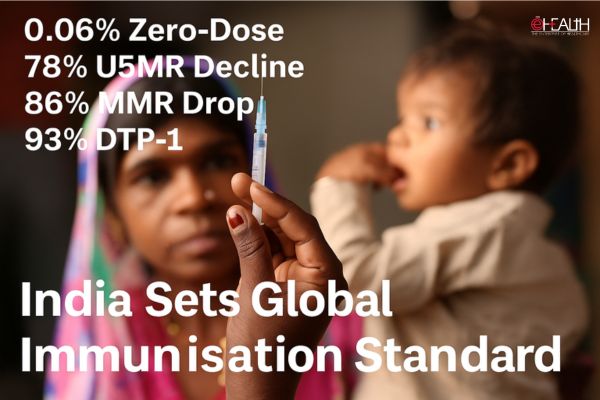
A new study published in the prestigious the Lancet Oncology journal has revealed that over 1.5 crore people will need chemotherapy globally each year by 2040. It also suggested that around one lakh cancer physicians will be required to treat the growing number of cancer patients mostly in low and middle-income countries.
Predicting the future, the study mentions the number of patients needing chemotherapy each year will rise by a 53 per cent from 9.8 million to 15 million (1.5 crore) globally.

The study was conducted by researchers at University of New South Wales in Sydney, Ingham Institute for Applied Medical Research, Kinghorn Cancer Centre, Liverpool Cancer Therapy Centre in Australia and International Agency for Research on Cancer, Lyon.

According to researcher Brooke Wilson of UNSW, the rising global cancer burden was undoubtedly one of the major health crises of today.

“Strategies are urgently needed to equip the global health workforce to enable safe treatment of current and future patients,? she said, adding “countries and institutions should use our data to estimate their future cancer physician workforce requirements and chemotherapy needs and plan national, regional, and global strategies to ensure all those who need it will have access to chemotherapy treatment.?

The study also looked at how many cancer physicians will be needed now and in 2040, and also explored where the patients needing chemotherapy will reside now and then.
“We needed 65,000 cancer physicians in 2018 to provide chemotherapy to all patients who would benefit from it, but that number will rise to an optimal 100,000 in 2040,” Wilson said.
“By 2040, over 10 million of the 15 million of patients requiring chemotherapy will live in low- or middle-income countries. Of the additional 5.2 million people needing treatment by 2040, an estimated 75 per cent will live in these countries.?
Study co-author Michael Barton of UNSW Medicine said “As a crucial component of cancer care, chemotherapy is likely to benefit a large proportion of these cases,” he said.
“Population growth and changes in distributions of cancer types by country were the leading factors driving the increased chemotherapy demand we saw in our study.”
The findings are of particular concern for regions expected to have the greatest increases in new cases requiring chemotherapy – doubling or more in eastern Africa, middle Africa, western Africa and western Asia.
In 2040, the most common cancers needing chemotherapy will be lung, breast and colorectal cancer and the greatest absolute increases in new cases will occur for these same three types of cancer.
Be a part of Elets Collaborative Initiatives. Join Us for Upcoming Events and explore business opportunities. Like us on Facebook , connect with us on LinkedIn and follow us on Twitter , Instagram.
"Exciting news! Elets technomedia is now on WhatsApp Channels Subscribe today by clicking the link and stay updated with the latest insights!" Click here!
















